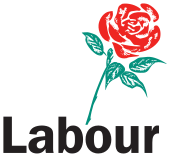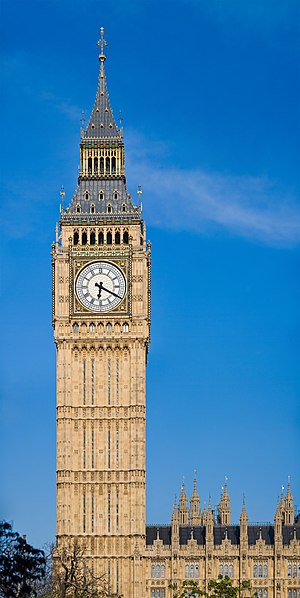Labour Government
 I thought it would be interesting to look to the future and see how we will be renting flats in 5+ years time. There are two certainties that we can predict – firstly there won’t be a recession, it beggars belief that we could go a decade or more with a stagnant economy, so I think that it will be safe to assume some sort of economic recovery will have been underway. Secondly there will be a change of government in 2015 – whether the coalition implodes, explodes, or simply fades away I think it is a safe assumption that we will NOT have a centre right government running the show. I will readily concede that it’s not clear whether we will lurch to the left or right, but I think the most likely outcome in 2015 will be a labour government. Helped by three recent publications of the Labour Party Policy views on Housing we can see what renting in the next decade will be like.
I thought it would be interesting to look to the future and see how we will be renting flats in 5+ years time. There are two certainties that we can predict – firstly there won’t be a recession, it beggars belief that we could go a decade or more with a stagnant economy, so I think that it will be safe to assume some sort of economic recovery will have been underway. Secondly there will be a change of government in 2015 – whether the coalition implodes, explodes, or simply fades away I think it is a safe assumption that we will NOT have a centre right government running the show. I will readily concede that it’s not clear whether we will lurch to the left or right, but I think the most likely outcome in 2015 will be a labour government. Helped by three recent publications of the Labour Party Policy views on Housing we can see what renting in the next decade will be like.
Private Rental Sector (PRS) Center Stage
There are some very big surprises – not least that the documents lay out a future for housing which would surprise a labour supporter of the 70s 80s or 90s – the Private Rental Sector (PRS) is center stage in providing homes. Labour is determined that everyone should have a home at a price they can afford, labelled A One Nation housing policy. It intends to achieve this by supporting renters and the majority who are responsible landlords, ensuring that they are not undercut by a minority of rogue landlords. However Labour also clearly sees the PRS in it’s current form as broken, and not working.
Labour acknowledges that most people want to own their own home, however Britain faces the biggest housing crisis in a generation and therefore many people will take longer to buy and will be renting for much longer than in the past. As a consequence, the private rented sector under Labour will play an ever increasing role in meeting housing need.
Private Rental Sector (PRS) Broken
Labour sees the PRS as not fit for purpose. It sees private renting as unaffordable, unstable and subject to poor conditions and bad management.
- It sees a need to tackle unscrupulous letting agents and end rip-off charges.
- It also wants to give renting families private rented homes that are affordable and stable, providing the predictability and security that allow families to plan ahead.
- It considers that there are too many bad landlords who prey on vulnerable tenants and that 35% of private rented stock that is non-decent.
- It also sees that the £8.6billion a year paid in Housing Benefit is going to private sector landlords who provide poor and sub-standard housing that ultimately serves to create further socio-economic costs for the public purse.
- It also sees amateur landlords who are well meaning but unaware of their responsibilities as a problem.
Private Rental Sector (PRS) Solutions
Across the 3 policy documents there are some clear recommendations which are in part already being implemented by some local authorities, and are “Good to Go” as soon as the new government hits the road:
1. A National Register of Landlords
Interestingly HMRC is specifically associated with the register, and no doubt a lot of links will be tied up so that right to operate as a landlord, and use the legal system to recover debts, be paid housing benefit, recover possession of a property will be linked to being on the register, and paying tax on rental income (Landlord Tax Evasion is estimated at £500,000,000).
2. A National Private Rented Property Standard
This is a change from the Housing health and safety rating system (HHSRS) philosophy introduced in the 2004 Housing Act which moved away from prescribed standards, and made the Landlord responsible for assessing and implementing an appropriate level of Health and Safety. The review specifically identifies:
- Tenancy deposits
- Energy efficiency
- Property conditions
- Response times and repairs
- Improved local enforcement intended to make it easier for local authorities to introduce licensing schemes
3. Tougher sanctions on bad landlords
- Reviewing penalties and sentencing guidelines (expect major increases).
- Stamping out retaliatory eviction.
- Removing bad landlords from the national register so they can no longer operate.
4. Regulation of Letting Agencies
- A code of code of conduct
- Entry requirements for letting agents
- Compulsory business and consumer protection measures.
- A regulatory body with enforcement powers.
- Transparency, clarity and accessibility of information relating to fees and charges which are easily understandable, upfront and comparable across agents
- Restriction on the level and extent of activities that can be charged for, the size of deposits required in proportion to rent and the level of ‘administration’ fees for basic services, such as those for changing rental contracts.
5. New Laws on Tenancy Agreements
This area is potentially the most far reaching, and from a Socio-Economic POV a radical departure from the home owning model of the last few generations. Labour recognise that our society has changed. In previous generations education ended somewhere between 15 & 21, but currently the world of work seems to start somewhere north of 21, if ever. The home ownership model is now a thing for middle age, families are renting much as they did in Victorian times – however the tenancy contract used by landlords (The Assured Shorthold Tenancy Agreement) was designed in 1988 to be used specifically for accidental Landlords. It was intended solely to be used for the renting of property which would otherwise have stood empty whilst waiting to be sold, and the Assured Tenancy introduced in the same Housing Act was intended to be the Tenancy Agreement used by the PRS.
So 25 years later we have a PRS based around a tenancy agreement designed for 6 month tenancies, but a requirement for 5 – 30 year tenancies. The only surprising thing is that Labour is the only political party to recognise this as a problem. Fortunately they also recognise that their 1977 attempt to create a level playing field was a disaster, and they make it clear that they will not be going down the road of regulated tenancies. The changes that they have indicated are less clear than in the other areas, but expect:
- Incentives that will form part of a “something for something” deal for landlords
- Direct payment of housing benefit to private sector landlords and housing associations who provide longer tenancies and predictable rents
- An improved legal process for long lets to evict renters who fail to pay rent and commit anti-social behaviour, including damage to the property.
- Current benefits of the tax system only available to landlords offering longer term stable tenancies.
Sources:
Labour Party Policy Reviews
Private Rented Housing: Improving standards for all
Private Rented Housing: Providing stability and affordability for renters and families




